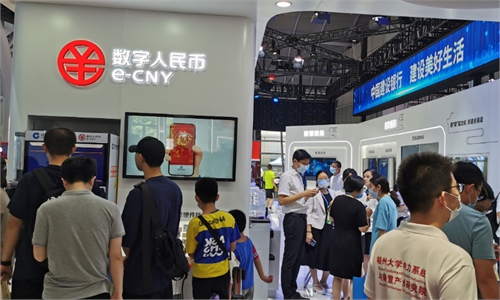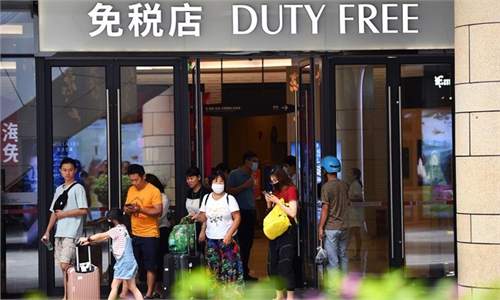Chinese commerce authority vows more efforts to ensure sustained consumption recovery

Photo taken on July 2, 2022 shows the view of a commercial street in Wuhan, central China's Hubei Province. In recent years, Hubei Province has striven to combine its night economy with culture and tourism in innovative ways, thus enhancing the vitality and attraction of nighttime consumption.(Photo: Xinhua)
China's Ministry of Commerce (MOFCOM) has given a positive projection on the trajectory of the consumption recovery in the second half of 2022, though it urged more efforts to promote a sustained rebound, admitting the foundation for renewed consumption growth is not yet solid.
The comments came on the heels of a meeting of the Political Bureau of the CPC Central Committee on Thursday, which emphasized efforts to keep the Chinese economy operating in a "reasonable range" and striving for "best results," while also stressing sticking to the country's dynamic zero-COVID strategy. The meeting called for promoting and expanding demand with more active macroeconomic policies.
An Baojun, a MOFCOM official, said on Friday that sales of big-ticket items, services including catering and tourism, and e-commerce all saw marked improvements in June, and the cinema industry returned to 90 percent of its level in 2021.
China will further expand the consumption of automobiles and green smart home appliances, and accelerate the healthy development of livestreaming e-commerce, An noted.
Meanwhile, China will tap the consumption power in smaller cities and rural areas with consumption-themed festivals, An added.
Experts said the task of shoring up consumption remains a daunting job, as people's incomes and employment were affected by the epidemic in the second quarter.
Consumption in the first half of the year was dampened by reduced personal incomes and supply-side disruptions caused by the epidemic, Bai Ming, deputy director of the International Market Research Institute at the Chinese Academy of International Trade and Economic Cooperation, told the Global Times on Friday.
With the resumption of work and production, it is believed that the supply end of consumption is gradually recovering, Bai said, noting that at the next stage, the most important thing is to stabilize employment and market entities, so as to restore consumer confidence.
The CPC leadership meeting on Thursday called for more efforts to address problems in the property sector, and to stabilize the job market and ensure employment of new graduates.
Retail sales expanded 3.1 percent year-on-year in June, data from the National Bureau of Statistics showed, after a drop of 6.7 percent in May and a decline of 11.1 percent in April.
First-half retail sales totaled 21 trillion yuan ($3.11 trillion), a year-on-year decrease of 0.7 percent, with spending in the second quarter declining by 4.6 percent year-on-year.
It is expected that cars and smart home appliances will be the driving points of consumption in the second half of the year, Tian Yun, a Beijing-based economist, told the Global Times on Friday, adding that these two sectors would have a strong driving effect on the recovery of the whole upstream industry, such as chips and materials.
He noted that the government's measures to promote the sales of green and smart home appliances in rural areas are expected to achieve an ideal effect to stabilize growth and expand employment, as China's rural areas have been basically covered by the internet network, laying a foundation for people to upgrade to smart home appliances.
Consumption vouchers that are being handed out in many localities may also provide a multiplier effect.
On Friday, the MOFCOM and other 12 government departments launched a nationwide campaign to promote home appliance upgrading with trade-ins of old appliances for new ones.



